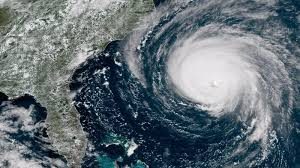This year has been crazy with Hurricanes, Floods, and Fires. Are you at risk? How will this impact your real estate values / costs? Even though many of the recent catastrophic events have been centered in certain regions, impacts will be felt throughout the country. Even if you didn’t directly suffer a loss, you likely will be impacted through increased costs or even a drop in real estate values.
For example, in the recent hurricane season, thousands of property owners had no damage to their units yet are facing huge bills that their insurance will not cover. How is this possible? With all the storm damage many condos/townhomes, etc.. had damage that wasn’t covered by insurance. For example in one case the condo owner had zero damage, yet there was roof damage and damage to other units that insurance only partially covered. This condo owner was faced with a “special” 60k assessment. This is not a unique situation. Property owners throughout the area are faced with thousands in damage that insurance will not cover. Bloomberg did an excellent article detailing the disaster In S. Florida.
This is not unique to Florida, in other areas prone to disasters (floods, tornadoes, fires, etc…) Insurance typically doesn’t cover everything. In a flood you have a limit typically of 250k for federal flood insurance. Let’s say you had a house worth 750k, that got washed away in a flood (total loss), you are stuck with a 500k loss since the government flood insurance would only cover 250k. There is private insurance for amounts above the 250k limit, but it is very expensive
Not only do property owners have to contend with their actual loss, but there are many other costs that someone will have to cover. For example, the city/county will have millions in expenses from large storms as well. This could be mitigation efforts, cleanup efforts not covered by insurance, overtime, etc… These costs must be paid by someone; that someone is you the commercial or residential property owner in the form of higher taxes.
This issue is not unique to Florida, this is occurring in other high-risk areas throughout the country after large natural disasters (think of the fires in CA). For example, at my house in Colorado, after some large fires, many insurers pulled out of the market. My property insurance went from 1300 a year to 3600, almost a 300 percent increase over a year! Similar scenarios played out in Atlanta Georgia (definitely not a coastal area!) a few years back due to flooding of some rivers. Many houses were either underinsured for the risk or not insured at all with huge bills owed by the property owners.
What should you do?
Over the long term, higher risk areas will equate to higher risk for real estate owners. This higher risk is three fold: 1) risk from actual losses 2) risk from increased taxes due to the disaster 3) risk of falling property values as many buyers will shy away from high risk areas as the costs increase exponentially. For example, in Colorado, there was a property that was recently added to the flood database (after minor flooding). The owners can’t give the property away as prospective buyers could buy a property a few feet higher and not pay the flood insurance premium each month.
It is imperative you identify your risk tolerance so that you can make an informed decision on any purchase or sale of a property. Just like any other investing, you want to try to avoid the highest risk areas to mitigate your losses.
Resources/Additional Reading
https://www.houselogic.com/finances-taxes/home-insurance/what-does-flood-insurance-cover/
I need your help!
Don’t worry, I’m not asking you to wire money to your long lost cousin that is going to give you a million dollars if you just send them your bank account! I do need your help though, please like and share our articles it would be greatly appreciated.
Written by Glen Weinberg, COO/ VP Fairview Commercial Lending. Glen has been published as an expert in hard money lending, real estate valuation, financing, and various other real estate topics in the Colorado Real Estate Journal, the CO Biz Magazine, The Denver Post, The Scotsman mortgage broker guide, Mortgage Professional America and various other national publications.
Fairview is a hard money lender specializing in private money loans / non-bank real estate loans in Georgia, Colorado, Illinois, and Florida. They are recognized in the industry as the leader in hard money lending with no upfront fees or any other games. Learn more about Hard Money Lending through our free Hard Money Guide. To get started on a loan all they need is their simple one page application (no upfront fees or other games).

